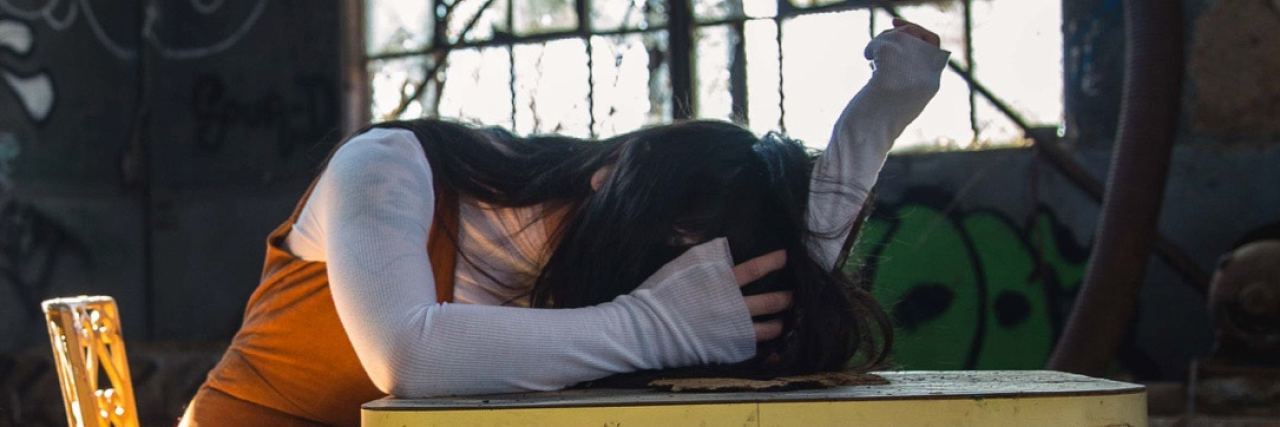An Introduction to Life With Borderline Personality Disorder
Editor's Note
If you struggle with self-harm or experience suicidal thoughts, the following post could be potentially triggering. You can contact the Crisis Text Line by texting “START” to 741741. For a list of ways to cope with self-harm urges, visit this resource.
Borderline.
It’s a label that sticks. An image that comes with a whole package of prejudices and assumptions – Winona Rider in a white gown, wandering the bleak corridors of an upstate asylum. A young girl crying alone on a bed. An unstable young woman with wild and unpredictable emotions, a person who is hard to get close to, someone who is reckless and often self-destructive, a person who can’t handle the ordinary pressures of life and relationships.
From within the mental health system, the view can be worse – people with borderline personality disorder (BPD) are seen as “using up” valuable clinical resources. Deliberately getting themselves into hospital and taking up beds which might otherwise go to those who have a “genuine” biological illness such as bipolar disorder or psychosis. They are often seen as manipulators, seeking attention through self-harm and suicidality. Personality disorders like BPD are the black sheep of the mental health system, always acting out, not fitting in, and intransigently resisting pharmacological help.
Some people find the label liberating – finally understanding what is wrong with them and that it isn’t their fault. Many, many others feel worn down by a system which often chooses judgment over real empathy because that is much quicker and easier in a stressed and under-resourced mental health system which is focused on through-put and risk management at the expense of human contact.
The reality for most people with BPD is that life can be difficult, painful and lonely. Just to survive day after day is exhausting. Fear can accompany every social interaction: Will this person like me? Will they affirm my shaky sense of self or will they reject me? Anticipating even the slightest hint of rejection brings people with this diagnosis into contact with the intense trauma that sits just under the surface. Abandonment is the endgame, and rather than experiencing the pain of being abandoned, they will do things that can make others less inclined to help them, often bringing about the very thing they fear the most. Each person they meet has the potential to destroy them. Everyday life for someone with BPD is like living on the verge of a waterfall, at the mercy of tides and the elements; the next contact could send them over the edge.
People with BPD do not have the words to describe these overwhelming mental states – they just are, and it feels like they are in it, now and forever, swallowed up by emotions that can’t be controlled or understood. No wonder they often want to end their struggle through suicide, or try to manage their emotions through self-harm. It’s an exhausting, painful struggle just to stay alive.
But there is hope. New treatments have made BPD recovery not just possible, but likely. If we can get people to stay with treatment, to stay in a relationship with a good therapist and learn the skills needed to live and relate to others day to day, then we can do the long-term work needed to co-create recovery. It’s not an easy journey for either therapist or patient, but it is one well worth taking.
Follow this journey on the author’s website.
If you or someone you know needs help, visit our suicide prevention resources page.
If you struggle with self-harm and you need support right now, call the crisis hotline at 1-800-273-8255 or text “START” to 741741. For a list of ways to cope with self-harm urges, click here.
We want to hear your story. Become a Mighty contributor here.
Photo by Nicholas Bui on Unsplash

